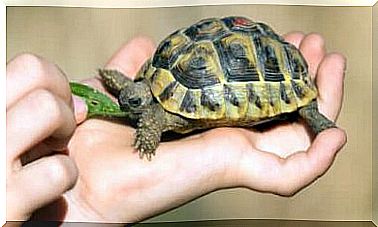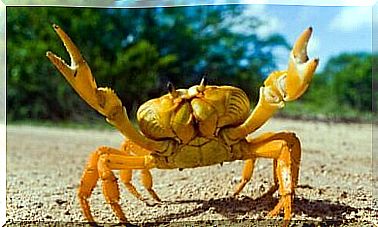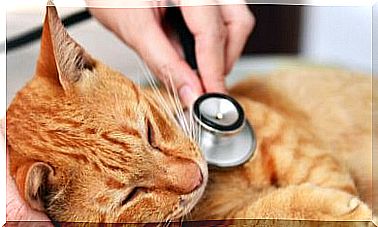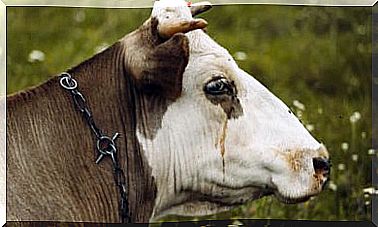The Ideal Food For A Turtle
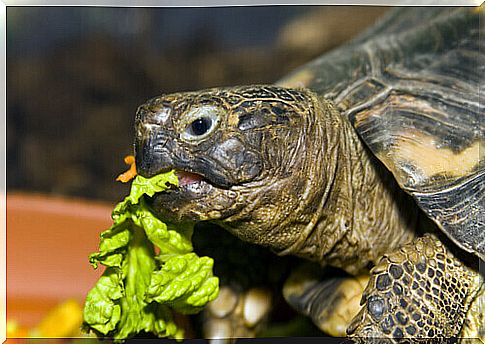
The ideal food for a turtle must provide the nutrients necessary to achieve the optimal development of its species. Thus, it will be possible to maintain your health status and make it coexist harmoniously with the environment around you.
An ideal pet
Turtles are part of the reptile family, along with alligators and crocodiles, snakes, lizards and iguanas. And, without a doubt, they represent, among reptiles, the friendliest type of coexistence with humans.
They are an excellent choice as a first pet for children, as they often teach them about the responsibility of taking care of a lifetime. All this, without requiring a lot of time or large spaces. They have an independent, calm behavior and adapt easily.
However, they also need attention to develop healthily and also a proper diet to nourish their organism. Therefore, we offer simple advice to choose the ideal food for a turtle and not to make mistakes in its creation.
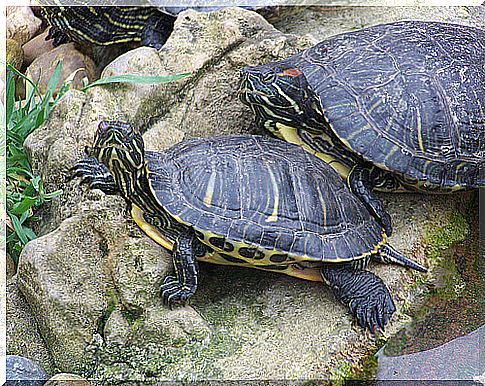
Source: neusitas
How to choose the ideal food for a domestic turtle?
Domestic turtles are divided into two large groups: aquatic and terrestrial. Each one needs specific care to preserve their good health.
Taking care of a water turtle
When choosing to raise a marine animal in an artificial environment, it is essential to pay careful attention to the preparation of its habitat.
The first step is to choose a suitable aquarium. Turtles need space to swim and move freely. This is critical to strengthening your body and balancing your metabolism.
Therefore, the dimensions of the aquarium must correspond to at least 4 times the size of the animal. The wider the space, the better the quality of life for your aquatic turtle.
The second step is to prepare the aquarium correctly. Don’t just fill it with water. The aquarium should have two environments: a pool (the “wet part”) where you can swim, and a dry part, above water, where you can sunbathe, dry off and rest.
Aquatic turtles hydrate, breathe and feed underwater. Therefore, it is essential to provide clean and fresh water to maintain your health. The ideal is for the aquarium to have a filter system and for a weekly cleaning of its interior.
Ideal food for a water turtle
Sea turtles are omnivorous. In their natural habitat, they usually feed on algae and other aquatic plants, small fish, crustaceans and molluscs. During their first growth phase (until reaching adulthood), they require a greater amount of protein.
There are special commercial feeds for aquatic turtles. These are an excellent option to ensure a balanced nutritional diet at every stage of your life.
However , the ideal food for an aquatic turtle should include natural and fresh elements daily. Fruits, vegetables, seaweed, raw fish meat, small seafood and shellfish.
Taking care of a land turtle
Land turtles need less preparation of the environment. You can choose to leave them loose at home, especially when you have a garden or a natural green area.
However, the ideal, to be more secure, is to buy a terrarium. The size logic is the same as that of the aquatic turtle, that is, the space must be 4 to 5 times larger than the animal and have weekly cleaning.
Ideal food for a land turtle
Land turtles are essentially herbivores. In their natural habitat, they consume much less protein than their aquatic relatives. But they can consume small insects and earthworms, especially during their most developmental phase.
There are also commercial feeds suitable for terrestrial turtles. These should be used as a nutritional basis as they offer proportions that are appropriate for your pet’s age.
The ideal food for a terrestrial turtle should be supplemented. Among these supplements are vegetables, fruits, flowers, herbs, small pieces of raw meat and earthworms.
Also, they need a high contribution of calcium and phosphorus to keep the carapace strong and resistant.
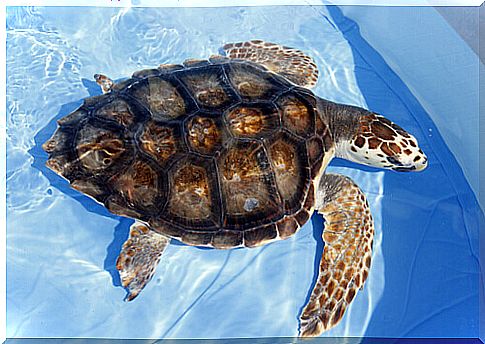
Foods to avoid in the ideal feeding of a turtle
Although turtles like a varied diet, some foods should be avoided to maintain their health status.
- Fruits: prefer pears, apples and melons. Avoid citrus fruits.
- Vegetables: Lettuce at will. Avoid spinach, green beans, asparagus, mushrooms, peppers, potatoes, beets and squash.
- Meat: avoid white and red meat with a high level of fat.
Cooked, spiced and/or industrialized human food should never be offered to turtles. This can cause serious digestive problems. Another good advice is to prefer organic vegetables and fruits, avoiding the ingestion of toxic fertilizers.

